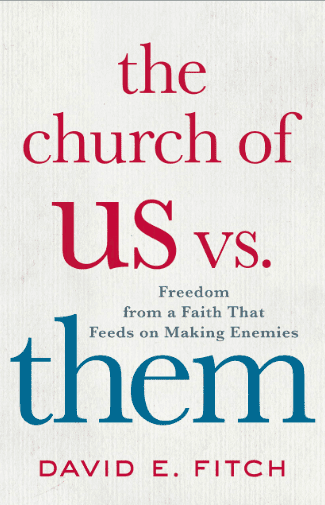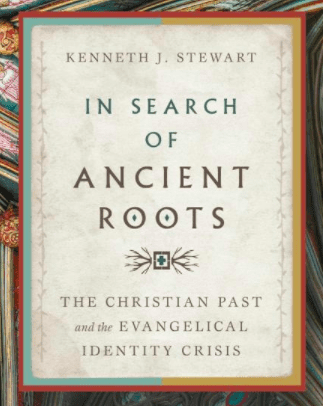 I started a discussion last week on the topic of academic freedom – a concept that is seriously misunderstood by both those who defend it and those who call for reform and control. The topic came up in the context of a book I read recently, For the Common Good: Principles of American Academic Freedom by Matthew W. Finkin and Robert C. Post. This book provides a historical description of the development of the ideals of academic freedom in the US, including the forces that have pushed for and against academic freedom.
I started a discussion last week on the topic of academic freedom – a concept that is seriously misunderstood by both those who defend it and those who call for reform and control. The topic came up in the context of a book I read recently, For the Common Good: Principles of American Academic Freedom by Matthew W. Finkin and Robert C. Post. This book provides a historical description of the development of the ideals of academic freedom in the US, including the forces that have pushed for and against academic freedom.
Academic freedom is not the freedom of the individual to do and say whatever he or she may wish. It is not a first amendment right to freedom of speech applied to academic employment and conduct in the classroom. Rather academic freedom is derived from a belief that, for the common good, professionals must be allowed to govern the practice of their own discipline.
The concept of academic freedom at some level is assumed by many these days although it is, more or less, a voluntary agreement within the academic community. The idea of academic freedom is much more controversial within Christian higher education. This is true not only in fundamentalism, but also in evangelicalism broadly defined. External constituencies, from pastors to donors, from boards to administrators, can play a significant role in limiting academic freedom, trying to control the institution and constrain it to their current view on many questions. We’ve seen this play out over the last several years in a number of cases, most recently John Schneider at Calvin College. In this context, the question I would like to consider today is the application of the idea of academic freedom to Christian colleges, universities, and graduate schools (seminaries).
Does the concept of academic freedom have a place in Christian colleges and universities?
What kinds of constraints on academic freedom are appropriate?
The 1940 Statement of Principles on Academic Freedom and Tenure starts with a statement of purpose. The page numbers below refer to the excerpts of the statement in Appendix 2 of Finkin and Post’s book.
The purpose of this statement is to promote public understanding and support of academic freedom and tenure and agreement upon procedures to ensure them in colleges and universities. Institutions of higher education are conducted for the common good and not to further the interest of either the individual teacher or the institution as a whole. The common good depends upon the free search for truth and its free exposition.
Academic freedom is essential to these purposes and applies to both teaching and research. Freedom in research is fundamental to the advancement of truth. Academic freedom in its teaching aspect is fundamental for the protection of the rights of the teacher in teaching and of the student to freedom in learning. (p. 183)
The 1940 statement also contains a specific exception for denominational schools.
Limitations of academic freedom because of religious or other aims of the institution should be clearly stated in writing at the time of the appointment. (p. 184)
Interpretive comments added in 1970 removed this exception religious institutions.
Most church-related institutions no longer need or desire the departure from the principle of academic freedom implied in the 1940 Statement, and we do not now endorse such a departure.
Many who read this post will feel intuitively that there does need to be a restriction on academic freedom at a Christian institution. After all a scholar who strays so far from Christian orthodoxy that he or she teaches and proclaims that Jesus never existed or that Christian faith is an ancient superstition to be shed as we grow has no place at an institution like Wheaton. A Christian institution should be able to maintain a requirement for Christian faculty. A limitation, clearly stated at the time of appointment is not unreasonable.
But where to draw the line? My contention is that for the common good of the church we need academic freedom at Christian colleges and universities.
Again, academic freedom is not a license to say or do anything. It is an opportunity to explore important potentially controversial questions free from meddling and the threat of loss of livelihood. This freedom is not for the convenience or personal gain of the scholar but for the common good. In the case of Christian scholars it is, or should be, for the common good of the church. We should not fear the truth – after all, God is the author of all truth. For the good of the church we need Christian scholars addressing and wrestling with the hard questions raised in the context of each new age. We cannot be content with the understanding of Augustine, Thomas Aquinas, John Calvin, Martin Luther, or Benjamin Warfield.
Without a culture of academic freedom any kind of serious engagement with the questions raised as a consequence of changes in our understanding of the world is a gamble. If the study leads naturally to “traditional” answers, all is well. But if the study leads naturally to the need for some readjustment and refinement of understanding? Well then all bets are off and livelihood is placed on the line.
Recent cases demonstrating the need. There have been a number of rather high profile cases of professors at Christian educational institutions under fire for practicing their discipline and exploring concepts relevant to the Christian faith in ways that have resulted in controversy and dismissal – usually negotiated in some fashion rather than outright dismissal. We can consider three specific cases to help direct some of the conversation.
1. John Schneider, formerly a professor of religion at Calvin College in Grand Rapids MI. John Schneider published an article in the theme issue of the ASA Journal Perspectives on Science and Christian Faith (v. 62 no. 3 2010) Reading Genesis: The Historicity of Adam and Eve, Genomics, and Evolutionary Science entitled Recent Genetic Science and Christian Theology on Human Origins: An “Aesthetic Supralapsarianism”. I posted on this article in two parts, The Fall and Sin After Darwin 4 and Did God Create Us Sinful? Dr. Schneider went through channels at Calvin before publishing his article but still ran afoul of the college president after the fact. An article published on mlive.com provides some limited information on the circumstances of Dr. Schnieder’s subsequent retirement from Calvin. It is also discussed in an article by Michael Ruse in the Chronicle of Higher Education and in an NPR story Evangelicals Question The Existence Of Adam And Eve. I posted on the latter in the post A Search for Acceptance? a couple of months ago.
2. Peter Enns, formerly a professor of Old Testament at Westminster Theological Seminary. He published Inspiration and Incarnation in2005 and, after a great deal of turmoil and conflict left Westminster in 2008. Inspiration and incarnation presents a useful approach to understanding the Scripture that we have as the Word of God. Dr. Enns suggests the use of an incarnational model or parallel. As Christ is fully human and fully divine – so also scripture is fully human and fully divine.
3. Richard G. Colling, formerly a professor of biology at Olivet Nazarene in Illinois. Dr. Colling published a book, Random Designer: Created from Chaos to Connect with the Creator as he wrestled with the issues of teaching biology to Christian students. His book was published in 2005, he was banned from teaching general biology in 2007 and resigned by mutual agreement in 2009. He is interviewed heavily in the upcoming film A Leap of Truth. The second clip in this post at BioLogos includes a brief look at randomness from A Leap of Truth with Richard Colling, Ard Louis, and John Polkinghorne.
Each of these cases involved a Christian professor at a Christian institution looking for ways to connect and integrate his discipline and the current state of knowledge with historic and orthodox Christian faith. Each ran afoul of powerful external influences, and each was compelled to retire or resign. This kind of external pressure is exactly the kind of issue the concept of academic freedom was developed to counter. Yet academic freedom at a Christian institution is a dicey issue. Fear of the slippery slope looms large.
Not limited to Questions of Science and Faith. When an external cacophony of donors and pastors can control or influence the security of employment at a Christian college or university any time a pet position or doctrine is challenged or explored, we as a church are weakened and damaged. This is not limited to science and faith questions, although these loom large in many instances. Several incidents in the 1990’s involving theology damaged my alma mater when a well known pastor demanded that the theology taught conform to theology at least marginally acceptable to him.
Roger Olson comments on this in at least two posts Defining Fundamentalism and later in Division in the Evangelical House (paragraphs 13 and 14). One comment Olson makes in his post on Defining Fundamentalism is particularly appropriate to our topic today.
During the long and protracted and very nasty battle over open theism in the Baptist General Conference and at Bethel College and Seminary one leading anti-open theism pastor told me to my face that he would get me fired if I did not stand with him against my colleague Greg Boyd and help him get Boyd fired. Unfortunately, at that time, Bethel did not have real tenure (it had five year contracts called “tenure”) and I felt very vulnerable. This pastor told me our face-to-face conversation was “not an inquisition” but later reported on it to the group of anti-open theism pastors of which he was a part.
Not an open theist, but also not willing to call open theism heresy, Olson felt his livelihood has threatened – and outside interests felt free to make such a threat. This is exactly the kind of situation that academic freedom was developed to address. Olson, by the way, has since moved to Baylor University.
Without tenure, and without a culture of academic freedom, Christian higher education borders on indoctrination. For the good of the church we need Christian scholars and thinkers free to address pressing questions without the threats raised by those who find even the asking of questions troublesome and to be avoided. For the good of the church we need Old Testament scholars who can wrestle with the nature of the scripture given our current understanding of the languages, culture, and history of the ancient near east. For the good of the church we need Christian scientists, philosophers, and theologians who can wrestle with the consequences and ramifications of evolutionary biology. For the good of the church we need Christian theologians in dialog over the various continuing questions of theology. Without a culture of academic freedom we have, at least on occasion, Christian institutions of higher education fearful of and catering to people who often can only be accurately described as bullies.
Do you think that academic freedom should have a place in Christian institutions of higher education?
If so what limits would you place on this freedom?
If not, why not?
If you wish to contact me directly you may do so at rjs4mail[at]att.net.
If interested you can subscribe to a full text feed of my posts at Musings on Science and Theology.











